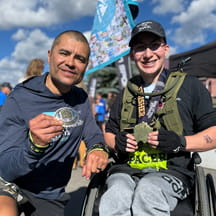Physicians directly influence the mission of most hospitals and health systems and provide a critical voice important in the success of new initiatives. But the ability to effectively lead and influence others requires skills that are not routinely taught during medical training. In 2014, Children's Hospital of Philadelphia (CHOP) developed physician leadership capabilities and created an in-house program for physicians across six clinical departments with a focus on mid-career physicians.
To date, a total of 155 physicians in five groups have completed the leadership program. The goals are to enhance the skills of existing physician leaders and build a pipeline of future hospital leaders. The physician leadership program has been successful in achieving its goals and more, according to Madeline Bell, CEO and president of CHOP.
Improving communication
The program's groupings led to substantial camaraderie among the participants. Many did not know other participating physicians from their own departments or from other departments before the program. The physicians said participation in the program provided an appreciation for the shared challenges others across the institution face. Participants also reported the program resulted in improved communication and improved inter-specialty care of patients.
Participants worked with colleagues they had never worked with before on leadership projects that involved employees within the institution across divisions, departments and service lines. Additional participant feedback indicated the program improved physician well-being as well as physician retention.
Other essential program components included individual assessments, executive coaching sessions, didactic sessions with physician leaders and community business experts, and experiential learning through a leadership project.
Establishing relationships
Over the years, there were lessons learned. Most participants had never had an executive coach and were unsure how to best use one. As a result, the program leaders provided more time to discuss the role of the coach, delayed introduction of the coach until several months into the program, and spread out the coaching sessions to provide interactions through the last month of the program.
The program leaders also learned the need to clarify the roles and expectations of the participants and those who nominate participants at the beginning. Division chiefs' and department chairs' engagement throughout, rather than only at initial nomination, was key to discussing skill development and leadership opportunities within the division, department and institution.
Enhancing leadership skills
Program leads obtained short-term outcomes using a questionnaire they emailed to groups at the end of the 10-month program. All participants agreed the program enhanced their leadership skills; they felt more connected to the institution; and they were committed to contributing to the enterprise-wide mission. Long-term data was obtained from three groups at least one year after completing the program.
Data from 93 participants showed that since completion of the program, 53% were in a new leadership role at CHOP, 38% were in a new leadership role nationally or internationally, 43% chaired a division or departmental committee, 14% chaired a hospital committee, 31% participated in a hospital enterprise plan, and 17% were promoted to a division chief or vice chair role.


